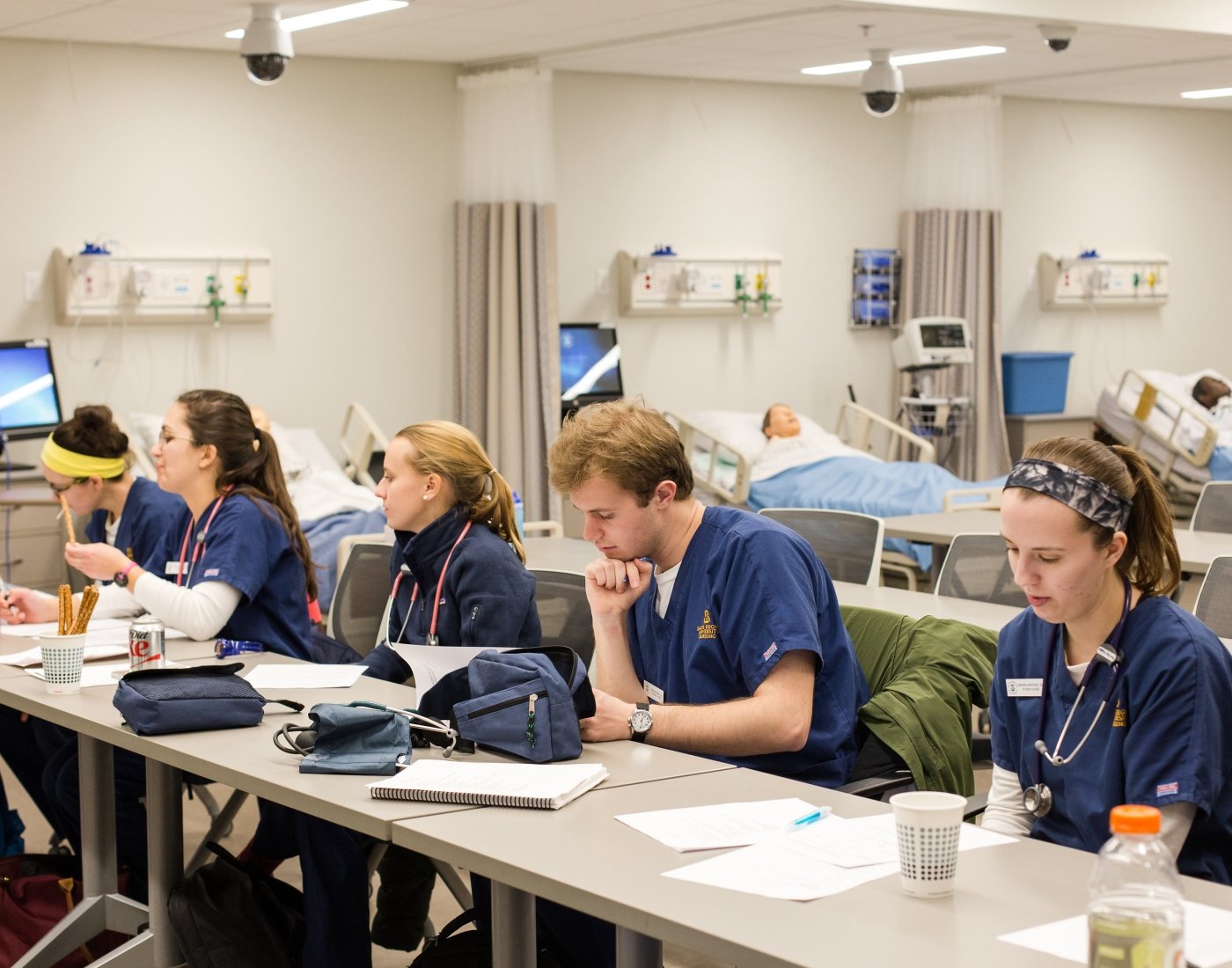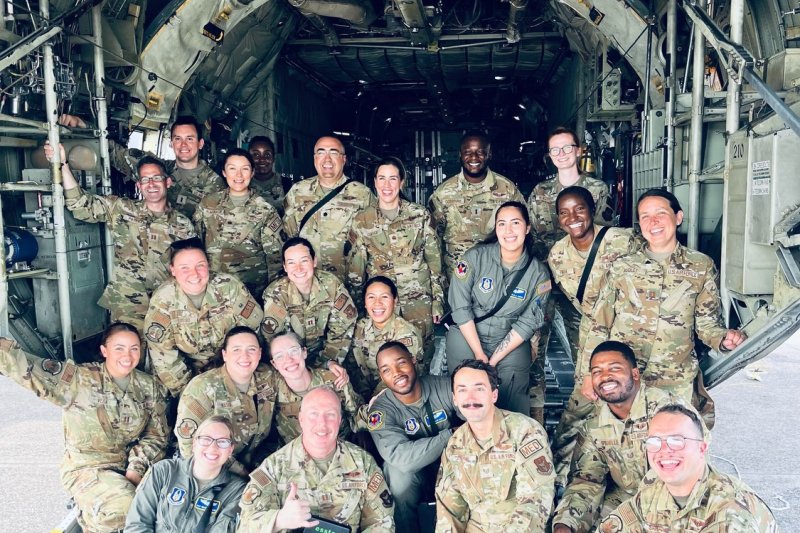Nursing Major
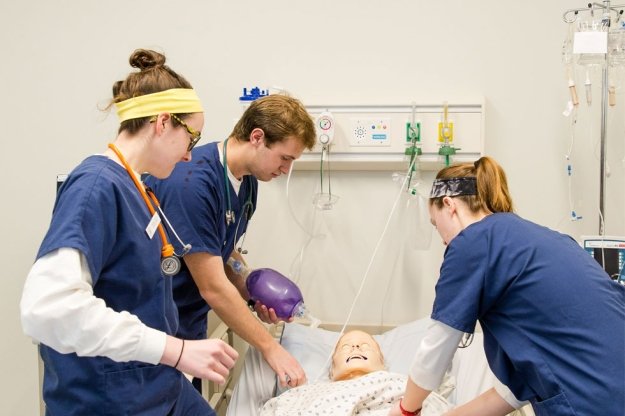
Salve Regina University's nursing program will equip you to provide high-quality, patient-centered care in a variety of settings. We offer two options: A pre-licensure track for high school graduates and a degree completion track for registered nurses.
Salve gives you the toolbox to succeed in any nursing career. With technologically advanced simulation labs, prestigious affiliated hospitals and a challenging course load, you will obtain the skills here to achieve greatness in the health care field.
Maraline Burke '22, post-anesthesia care nurse, Beth Israel Deaconess Medical Center
Direct-Admission, CCNE-Accredited Nursing Program
Our direct-admission, CCNE-accredited program is designed to be completed in four years, with nursing courses starting in your first semester. We encourage our students to participate in athletics, research, internships and short-term study abroad opportunities.
In our state-of-the-art classrooms and simulation labs, you'll develop the skills needed to care for patients across a range of conditions, including acute and chronic illnesses, childbearing and childrearing families, mental health challenges, and end-of-life care.
Through clinical placements in hospitals and health care facilities, you'll gain practical experience in providing appropriate, safe and holistic care, while respecting your patients' individual differences, values and needs.
After graduation, you'll be eligible to take the NCLEX exam to become a licensed registered nurse. You'll also be well-prepared to pursue advanced degrees, such as our Master of Science in nursing or Doctor of Nursing Practice programs.
What Sets Salve Apart
100% of our nursing graduates are employed, with 35% of students accepting a job prior to graduation.
Our direct-admission program is selective, and you must apply by Nov. 1 to be considered.
99% of our graduates pass the NCLEX licensure exam, with a first-time pass rate of 88%.
Our clinicals have an 8:1 student to faculty ratio, ensuring greater individual attention and skill development.
Build Your Core Nursing Knowledge
Our hands-on learning opportunities, small class sizes and supportive faculty will develop the skills you need to succeed as a nurse. Through classroom learning in our state-of-the-art simulation labs and clinical placements in hospitals and health care facilities, we’ll prepare you to meet the diverse needs of patients throughout their lives and across different stages of health.
Practice Skills in Simulation Labs
Our specialty-focused simulation labs recreate everyday hospital situations. You’ll use actual clinical equipment to check vital signs, give medications, evaluate patient response to treatment and more, all in a safe and stress-free setting. We have the same high-tech manikins used at medical schools worldwide, representing a wide range of patients.
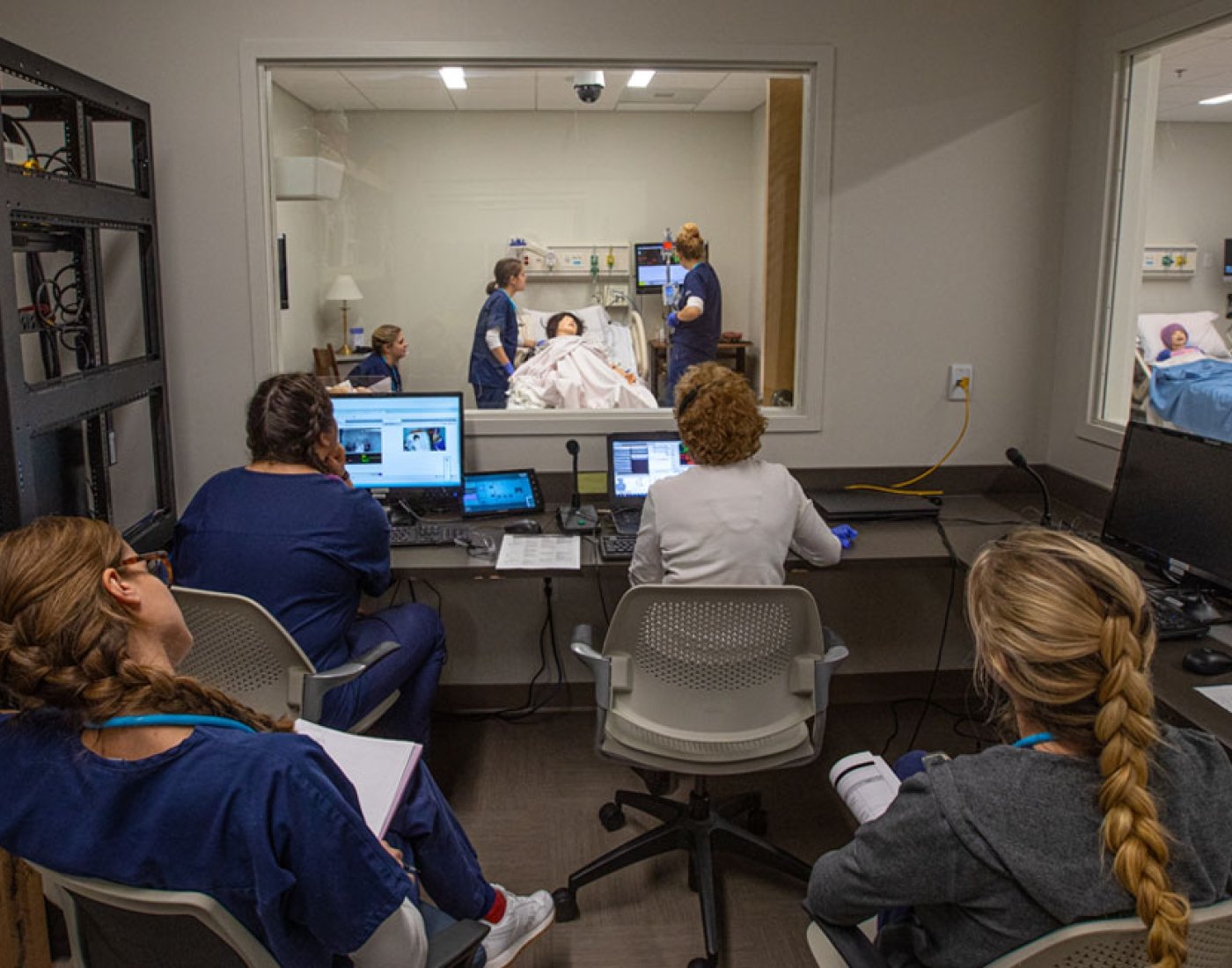
Gain Confidence Through Clinical Experiences
In your clinical rotations, you’ll gain the practical experience needed to provide professional, holistic care for patients from diverse backgrounds. Precepting at partner sites throughout Rhode Island and southeastern Massachusetts, you’ll learn to deliver ethical and cost-effective nursing interventions that support the well-being of patients and their families.
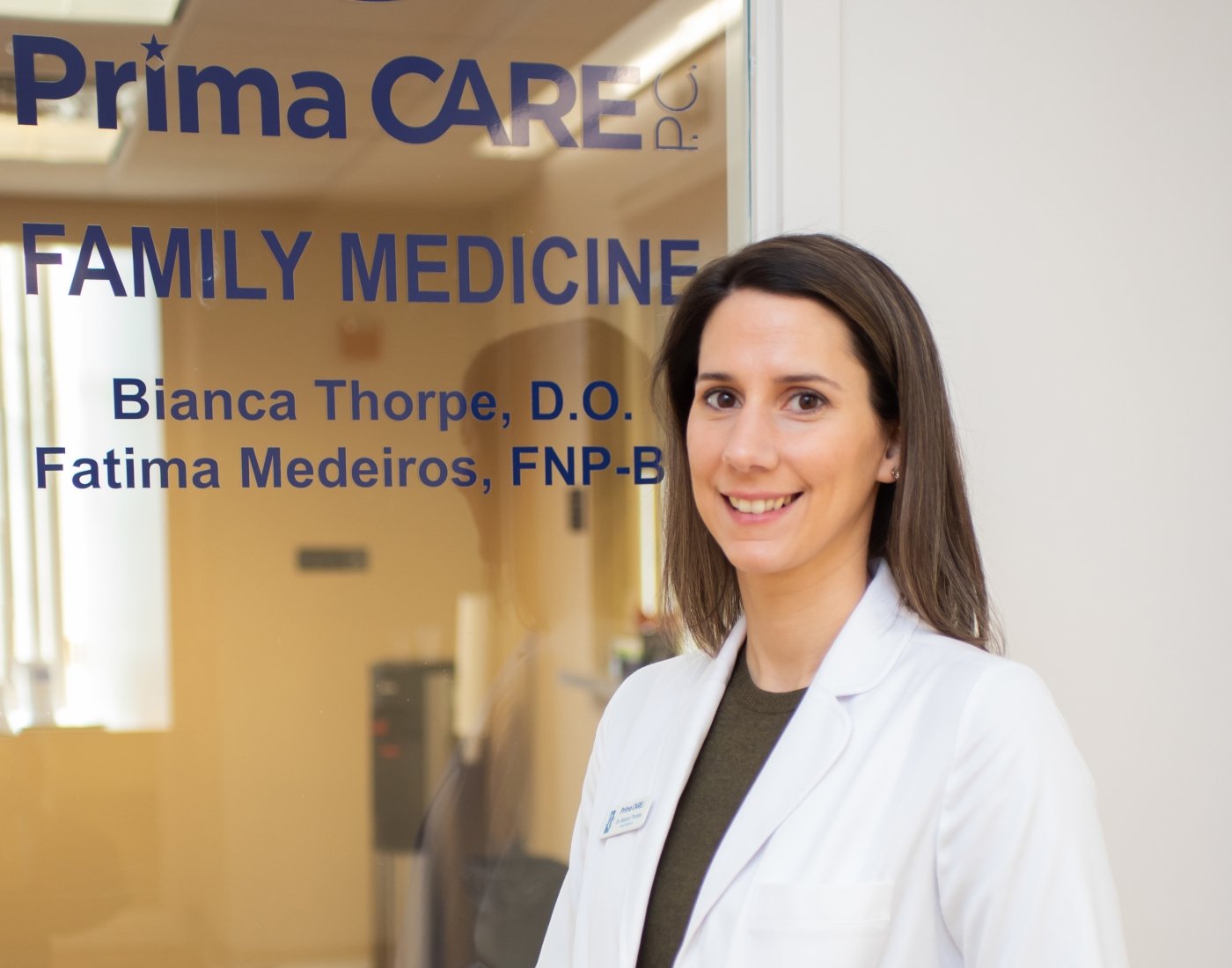
Explore Public Health in Ireland
Our summer study abroad program in Ireland is a great opportunity for nursing majors to gain international experience. The three-credit course Public Health in Ireland starts on campus in the spring and ends with two weeks in Limerick, Ireland. You’ll compare the public health education, policies and delivery of health care in Ireland, Northern Ireland and the U.S., gaining a broader understanding of global health systems.
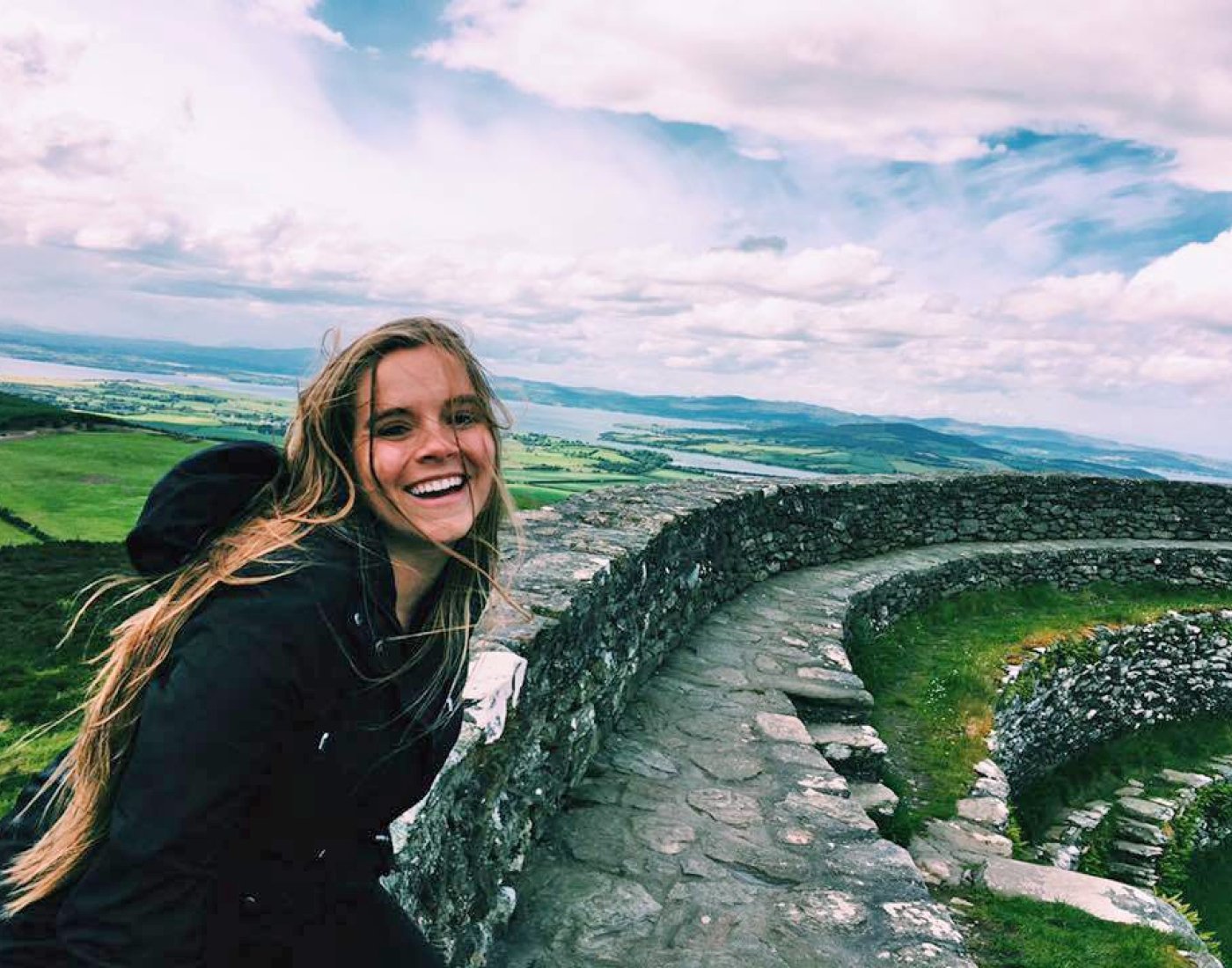
Career Paths in Nursing
Our graduates are highly sought after by hospitals and health care systems, and they are very successful at securing competitive specialties. In addition, they are well-equipped to pursue advanced degrees, including our M.S. in nursing, with specializations in family nursing and psychiatric mental health, or our Doctor of Nursing Practice program.
Graduates can practice in a wide array of fields, including:
- Ambulatory care, critical care, home health care or hospice/palliative care
- Cardiology, gastroenterology, hematology, pulmonary care or rheumatology
- Dermatology or plastic surgery
- Gynecology/obstetrics, reproductive health, labor and delivery, neonatal intensive care, perinatal care or pediatrics
- Hematology or nephrology
- Medical-surgical, trauma, triage or wound care
- Mental health, neuroscience, psychiatrics or substance abuse
- Occupational health, orthopedics or rehabilitation
- Oncology or radiology
Alumni Making Waves

Maraline Burke '22
Post-anesthesia care nurse, Beth Israel Deaconess Medical Center
"My capstone experience at Rhode Island Hospital in the cardiothoracic intensive care unit is my most treasured educational experience because of how much I learned from the registered nurses on that floor. In this once-in-a-lifetime opportunity, I watched in awe as registered nurses and physician assistants worked together to stabilize patients after open-heart surgery, seemingly helping to bring their patients back to life."
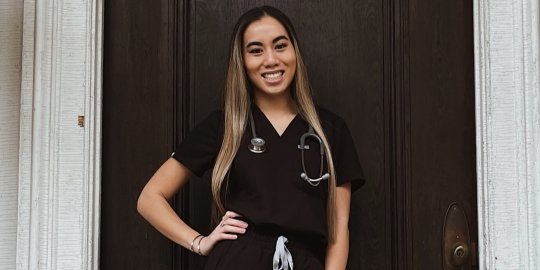
Mikayla Lewandoski '21
Registered nurse, Hartford Hospital
"My time as a Salve Regina nursing student was the most rewarding experience, opening the doors to new opportunities and a successful future. I was challenged to think critically and holistically, enabling me to better care for my patients' complex needs. Undoubtedly, the classroom education and clinical experience I gained at Salve assisted me in securing a nursing position three months prior to Commencement."

Benjamin Silva '24
Registered nurse, Brown University Health
"In our clinicals, we learned valuable hands-on skills and developed our intuitive knowledge in a way that could not be replicated by textbook learning. Clinicals taught me how to be a good leader, as well as how to advocate for patient populations that may not be able to advocate for themselves, both of which are extremely valuable skills in the medical field. Now that I am practicing as an RN, I am thankful that I had clinicals that taught me such valuable skills, as I find myself using them daily to ensure my patients are receiving the best care possible." Read more about Silva's Salve experience.
Degree Options
Bachelor of Science in nursing
Nursing majors complete a minimum of 120 credits, including 97 credits in the major and an additional 29-32 credits in the Core Curriculum.
Admission Requirements
Due to site requirements for experiential learning, the number of students that we accept into the nursing program is limited to ensure clinical placement. You must apply by Nov. 1 to be considered.
In general, a successful applicant meets the following standards:
- Completion of four years of high school science, including biology, chemistry and an upper-level science such as anatomy and physiology, physics, AP biology or AP chemistry
- Strong standardized test scores, if applicable (Salve is SAT or ACT optional)
- Competitive high school GPA and class rank
Transfer and Second-Degree Applicants
We welcome transfer applicants for all majors except nursing. If you're interested in the health care industry, we recommend a degree in biology, chemistry, psychology, healthcare administration, social work or other related areas. Visit our program finder for more details.
If you're pursuing licensure as a registered nurse, we hope you'll consider our continuing education program in nursing (RN-BSN).
Wellness Without Barriers
Our new health and wellness community outreach program helps to educate the next generation of health care and mental health professionals while serving Rhode Island communities in need. Staffed by nursing students and faculty, the program’s mobile wellness unit provides on-site care and preventive screening education, aiding in the effort to reduce health care access disparities across the state.
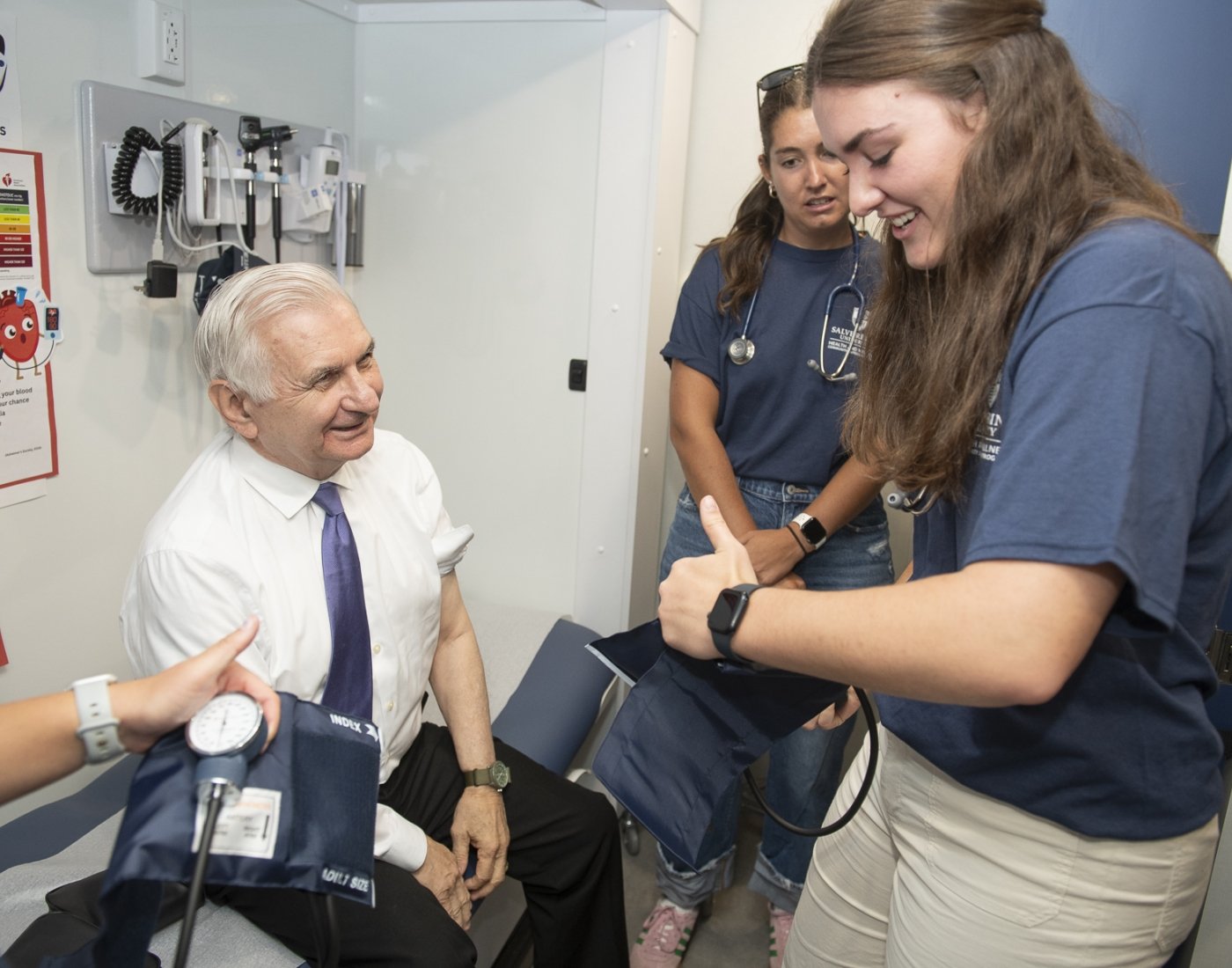
Meet Our Nursing Faculty
Our dedicated faculty are experienced practitioners who prepare students to practice competently in a variety of settings and to provide for the health and healing of patients across the lifespan and along the continuum of health.
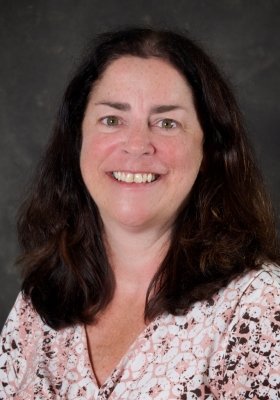
Dr. Elizabeth Bloom
- Associate professor
- Chair, Nursing
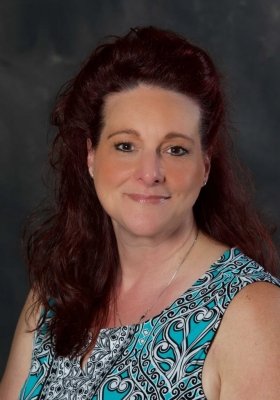
Dr. Debra Cherubini
- Associate professor
- RN-BSN program director
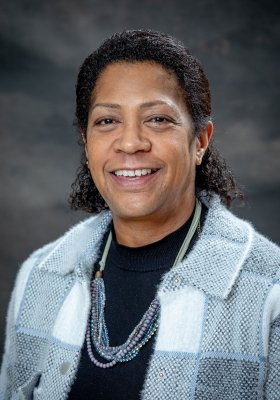
Regina Dublin
- Lecturer
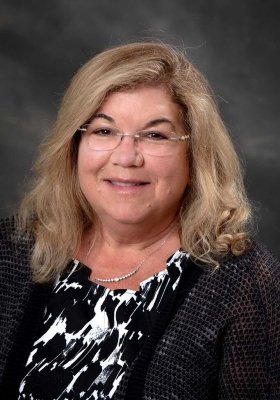
Clarisse Fairbanks
- Assistant professor
- Lead clinical instructor
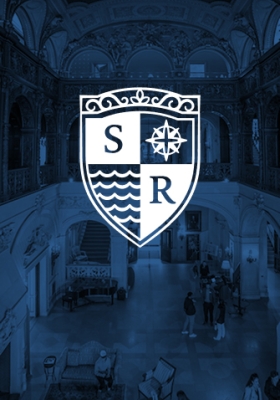
Amy Joyce
- Lecturer
- SIM lab coordinator
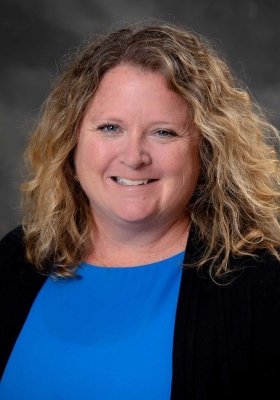
Dr. Sharon Keating
- Assistant professor
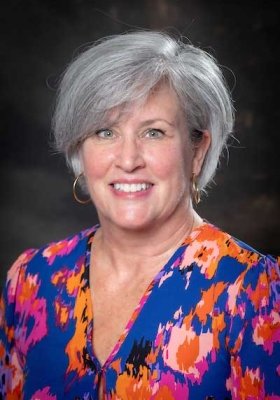
Dr. Terri Legare
- Assistant professor
- Associate chair of nursing, undergraduate program
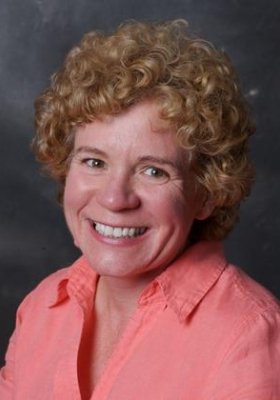
Mary Lou Lyons
- Lecturer
- Lead clinical instructor and new essentials

Jenna Ribeiro
- Lecturer
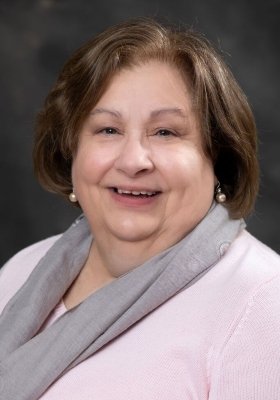
Denise Sullivan
- Lecturer
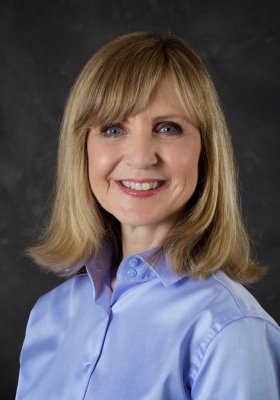
Dr. Louise Sullivan
- Associate professor
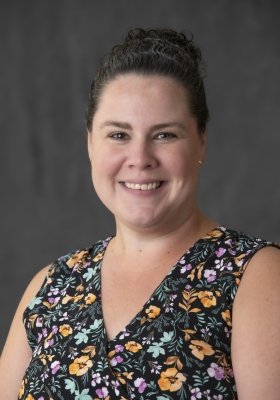
Audrey Zoto
- Lecturer
Beyond the Classroom
Our students can join campus organizations and honor societies such as the Student Nurse Organization, Building Animal Research Connections and Sigma Theta Tau.
Student Nurse Organization
The Student Nurse Organization is dedicated to professional growth, academic excellence and community engagement. Through leadership, advocacy and service, students learn more about the nursing profession while building friendships with fellow nursing majors and responding to community needs. They also gain hands-on experience through mentorship, volunteer work, skill-building sessions and an opportunity to attend the National Student Nurse Association conference.
Building Animal Research Connections
Building Animal Research Connections (BARC) explores the benefits of animal-assisted therapy by organizing research projects that evaluate how interacting with therapy dogs impacts stress levels in college students. Guided by faculty, nursing students act as research assistants by measuring blood pressures and surveying students who interact with therapy dogs during “stress buster” events on campus. The students often present their findings at Salve Regina’s SRyou Student Exposition. Read more about BARC.
Sigma Theta Tau
In their junior year, qualified nursing majors are invited to join Sigma Theta Tau, the international honor society of professional nurses. Sigma Theta Tau aims to advance world health and celebrate nursing excellence in scholarship, leadership and service.

